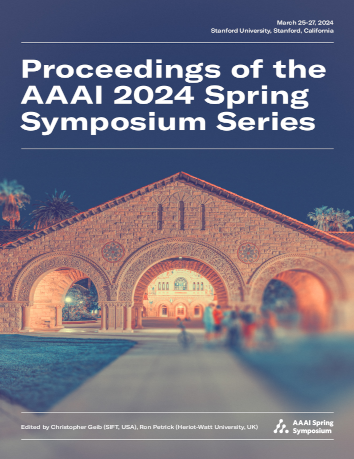Artificial Trust in Mutually Adaptive Human-Machine Teams
DOI:
https://doi.org/10.1609/aaaiss.v4i1.31766Abstract
As machines' autonomy increases, their capacity to learn and adapt to humans in collaborative scenarios increases too. In particular, machines can use artificial trust (AT) to make decisions, such as task and role allocation/selection. However, the outcome of such decisions and the way these are communicated can affect the human's trust, which in turn affects how the human collaborates too. With the goal of maintaining mutual appropriate trust between the human and the machine in mind, we reflect on the requirements for having an AT-based decision-making model on an artificial teammate. Furthermore, we propose a user study to investigate the role of task-based willingness (e.g. human preferences on tasks) and its communication in AT-based decision-making.Downloads
Published
2024-11-08
How to Cite
Centeio Jorge, C., de Visser, E. J., Tielman, M. L., Jonker, C. M., & Robert, L. P. (2024). Artificial Trust in Mutually Adaptive Human-Machine Teams. Proceedings of the AAAI Symposium Series, 4(1), 18-23. https://doi.org/10.1609/aaaiss.v4i1.31766
Issue
Section
AI Trustworthiness and Risk Assessment for Challenging Contexts (ATRACC)

